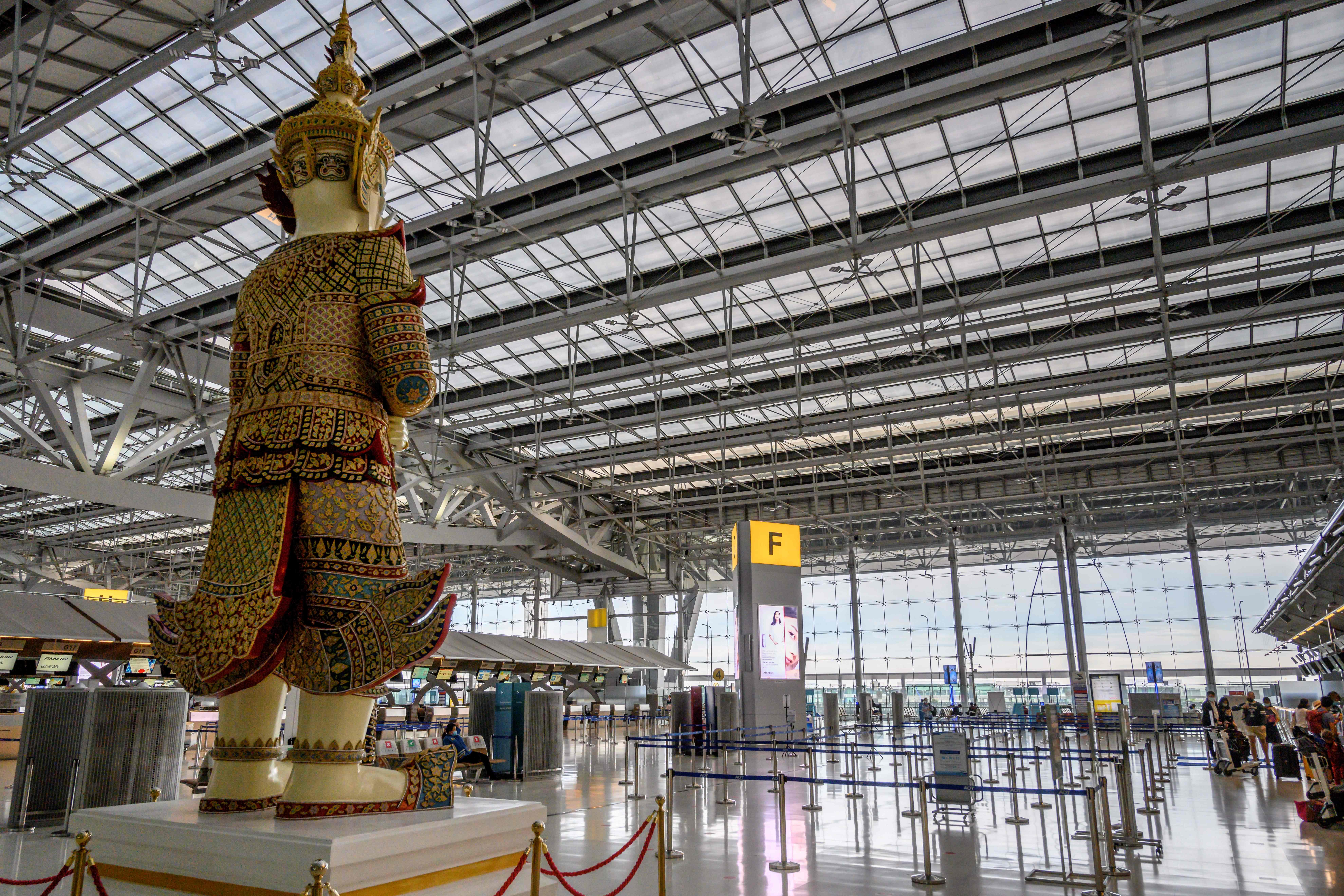
An almost empty departure hall at Bangkok’s Suvarnabhumi Airport in Thailand as passenger numbers plummeted due to the Covid-19 pandemic.
Mladen Antonov | AFP | Getty Images
Some economies in Southeast Asia have had more success in containing the coronavirus outbreak — but global uncertainties would keep a lid on the extent of economic recovery in the region, according to an economist from Japanese bank Nomura.
“Generally for the region … it’s somewhat of a U-shape recovery at best, I would say, because it’s still full of uncertainty and I think the risks are still tilted to the downside,” Euben Paracuelles, Nomura’s chief Asean economist, told CNBC’s “Street Signs Asia” on Wednesday.
A U-shape recovery typically means an economy spends a longer time at the bottom of a recession before it gradually rebounds.
He explained that even though Thailand has appeared to successfully contain its outbreak, the economy would still experience “a major drag” from the slump in tourism. The hit from tourism is likely to continue until border controls are eased or a vaccine becomes available — which would enable people to travel again, he added.
A report released last month by the United Nations Conference on Trade and Development named Thailand as one of the countries that could suffer the largest economic hit from the loss of tourism. In the most optimistic scenario, Thailand would lose 9%, or around $47.7 billion, of gross domestic product, according to the report.
Before the coronavirus pandemic, “the single main economic engine of Thailand was really tourism and related sectors,” noted Paracuelles. “You take that away, there’s really not much that’s going to boost the economy.”
Meanwhile, Singapore has eased partial lockdown measures for over a month — but a renewed coronavirus outbreak globally could threaten overseas demand for the country’s goods and services, said the economist.
The Singapore economy is dependent on external demand given its small domestic market.
Countries still struggling with outbreak
Indonesia and the Philippines — the two most populous countries in Southeast Asia — are still struggling to control the spread of the coronavirus disease or Covid-19 locally.
Both economies have suffered. Indonesia on Wednesday reported its first economic contraction in more than two decades after its second-quarter GDP shrank by 5.3% from a year ago, while the Philippines on Thursday posted a 16.5% year-on-year contraction — its deepest on record.
The Philippines this week also tightened a lockdown on capital city Manila and nearby provinces — a move which would further hit economic activity, said Paracuelles.
The economist said both governments face greater urgency in supporting their respective economies.
He noted that the Philippine government has not spent as much as some countries in the region in boosting the economy.
“If it doesn’t happen quite urgently, I’m afraid it’s going to lead to even more concerns, the business uncertainty will remain high and therefore hampering any recovery,” he said.
For Indonesia, Paracuelles said the longer authorities take to control the outbreak, the harder it will be for any stimulus measures to negate the hit on the economy.
Source: CNBC
